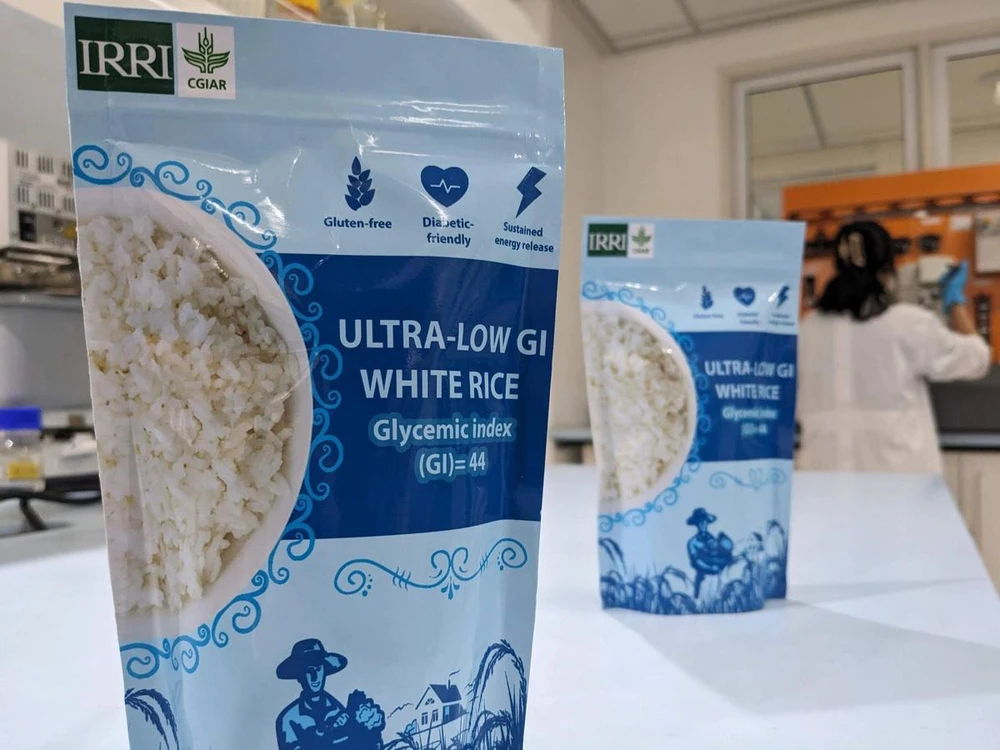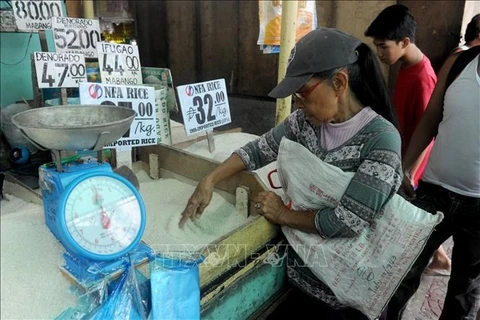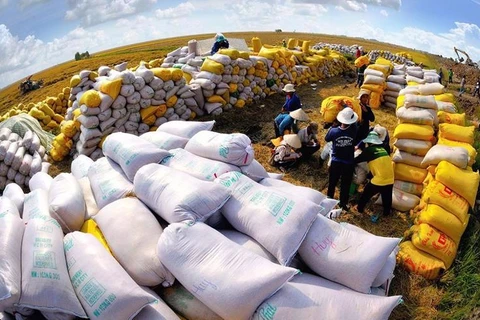
Hanoi (VNA) – Scientists at the Philippines’ International Rice Research Institute (IRRI) have created a new variety of rice that can reduce the growing burden of diabetes.
More than 537 million adults worldwide are living with the chronic disease – a number that is expected to grow to 783 million by 2045. More than 60% of people with diabetes live in Asia.
Diabetes is a chronic condition that develops when a person’s body doesn’t produce or effectively use insulin, which it needs to turn sugar into energy. There are essentially two types of diabetes. Type 1 is an auto-immune condition that is not preventable. Those sufferers must take insulin daily.
However, Type 2 diabetes can be combatted to some extent by changes in lifestyle and eating, sometimes preventing the need for diabetes medication. People with Type 2 diabetes or pre-diabetes can benefit from a diet of food low on the glycemic index (GI).
GI measures how fast a food item raises blood sugar levels and contributes to diabetes. According to Diabetes Canada, GI is a scale from 1-100 that ranks a carbohydrate-containing food or drink by how much it raises blood sugar levels after it is consumed. Foods with a high GI (70 or more) increase blood sugar higher and faster than foods with a low GI (55 or less). Most available rice varieties have GI levels between 70 and 72. White rice is notable for having a high glycemic count.
The good news is that the IRRI has developed a rice variety that has a GI as low as 25. Also high in protein, the new rice variety looks like white rice but has smaller grains.
The IRRI researchers have been working with the University of California, the Max Planck Institute of Molecular Plant Physiology in Germany, and Bulgaria’s Centre of Plant Systems Biology, reports the Guardian.
Using the IRRI’s extensive rice gene bank, the world’s largest, researchers screened 380 seed samples over 10 years to identify genes with a lower glycemic index and higher protein content. Then they combined them, creating a diabetes-friendly, healthier rice option.
The rice has yet to be grown outside IRRI’s laboratories, but the IRRI plan is to start growing the new varieties in India and the Philippines as part of the IRRI’s aim to combat hunger in countries where rice is the staple food, reports Philippines-based website wionnews.com.
The IRRI project is currently undergoing multi-location trials in over 10 Philippines provinces. It is hoping the new rice variety will be ready for market within two years./.






















